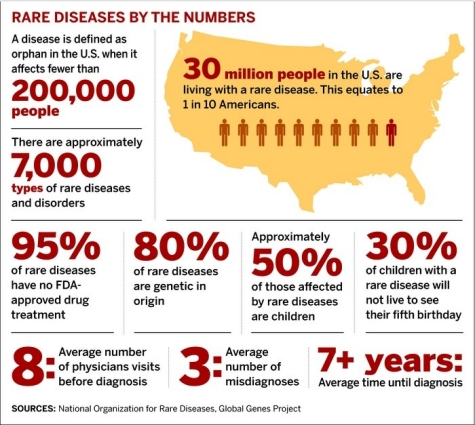OMAHA PERFORMING ARTS
From the IDEA Committee: February is Rare Disease Month

My daughter, Penny, has Rett Syndrome. If you have never heard of it, you’re not alone. Rett is an incredibly rare genetic disease that afflicts less the 400,000 people in the world. It occurs almost exclusively in girls because of a mutation in the X chromosome. There are more than 900 different mutations that lead to a wide range of severe impairments affecting nearly every aspect of the child’s life. Penny has lost her speech, all purposeful use of hands, her ability to walk or stand on her own, and has developed severe and unpredictable seizures, breathing apnea, and heart problems at only 10 years old. She has a feeding tube, takes six daily medications and has eighteen doctors, therapists and nurses who take care of her, including a day and third shift nurse.
So why are we talking about this during February? Because in addition to celebrating Black History month, February is also Rare Disease Month, with the day falling on February 29 — the rarest of all days — as well as February 28 on non-leap years.
Below are some key facts and figures, not least of which is: though a rare disease afflicts an infinitesimally small part of the population, there are over 30 million people (about 10% of the U.S.) diagnosed with a rare disease with no cure and a significantly large inequity of services and resources allocated to curing devastating diseases like Rett Syndrome.

Consider the following other inequities when it comes to adults and children of all socioeconomic demographics:
- The majority of those afflicted with the rare diseases have literally no voice to speak up for themselves or their rights.
- Cost of living is more than 7 times the cost of living of an average family.
- Many of the services covered by secondary insurances cover the base or lowest quality available, including food, drugs and social care.
- Educational resources such as distance and remote learning are almost non-existent or effective, especially when schools temporarily shut down due to weather.
- Parents and caregivers are 3 times more likely to struggle with poverty or advance in the workplace.
- There are very few opportunities to provide social opportunities for all family members including children.
It’s this last point which connects us to Omaha Performing Arts. Our accessibility efforts ranging from wheelchair, caregiver and sensory friendly programs allow access and provide empathy for a significant population who rarely have the chance to do something “normal.” Consider all the daily challenges and then consider the significant planning to find welcoming places with amenities that provide a dignified experience that can be easily changed, even after we show up to an event. We think of everything from food to parking, adult changing rooms to refund policies, how others will perceive us, and many other things on top of the daily care needed to just get by.
It’s also worth making you aware of many under resourced arts equity education programs who help provide inclusive schooling environments so that children grow up understanding that kids with all needs should be a part of their lives, and not hidden away. One such example from my past job is https://www.mikaylasvoice.org/, formed by parents of a paraplegic daughter who go into elementary schools and lead wheelchair bound children through paint. Huge canvases are laid on the floor and the wheelchairs go around painting a large mosaic where all children join in with paint, crayon, tissue paper, papier-Mache and other tactile art supplies to create a collective canvas.
We all want to be happy. Though my daughter cannot speak, almost every research scientist of rare and non-rare diseases know that doesn’t mean she has nothing to say. She has a full range of “normal” emotions, as do those who support her. You can play a significant role in the work we're doing at O-pa by learning more about the services we offer and how simple things can provide life-changing, memorable experiences for those who rarely have the opportunity. Quality of life services cannot be undervalued, especially to those significantly impaired by rare diseases.